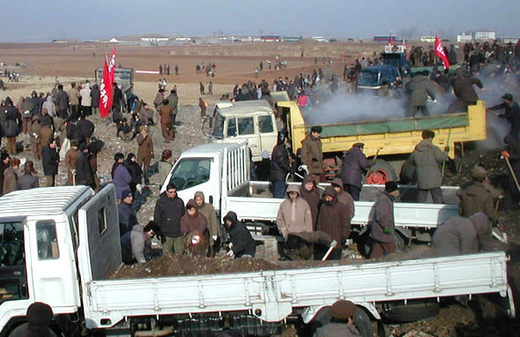 |
Military, feds are also hitting the stuff, report says
A new type of social problem is emerging in North Korea: its people are increasingly addicted to drugs.
In a newsletter on June 8, an aid group specializing in North Korean humanitarian affairs, Good Friends, said, “The number of men in their 20s and 30s who use drugs is rising.” The newsletter said the North Korean men, who generally first took narcotics because of curiosity, are addicted to drugs mainly due to anxiety about their poor livelihoods. In the case of North Hamgyeong province, a border region with China, about 5 percent of economically-active people were believed to be taking drugs, it said. Narcotics and amphetamines were the most widely used.
According to the newsletter, several robbery suspects who were in custody early this year in Hamgyeong and North Pyeongan provinces said their crimes were related to drugs.
Citing a source close to North Korea, the newsletter said drugs are also circulating among high-ranking officials in the North Korean Workers’ Party and military, in part due to a rumor that people who take drugs at moderate levels may live longer. The failure of anti-drug authorities in cracking down on trafficking has been linked to reports that workers at some of those agencies were also addicted to drugs, the newsletter said. As the situation has grown increasingly bad, North Korean leader Kim Jong-il is believed to have ordered in March 2002 a strong crackdown against raising opium and drug trafficking. In addition, Kim allegedly set the death penalty as a maximum punishment for those suspected to be in connection with drug sales, manufacturing, or exporting. However, a prolonged food crisis is believed to be one of main reasons why North Korea has failed to tackle the problem despite strong measures. To provide rice for their employees, pharmaceutical companies in North Korea were believed to sell amphetamines for money. An official at Good Friends said, “North Korea’s declaration of a war against drugs was in fact a result of its judgment that the level of drug use among its people was reaching a critical point.”





